Friends,
Today, I’m bringing together two of my favorite things: food and books. As you may know, I read as voraciously as I eat: about a book a week on average, all from the Brooklyn Public Library, which means I have no shelf wealth, but I do have an impressive Hold List.
I just finished The Bee Sting, by Paul Murray, which I loved (though that punctuation! and that ending!), Wellness, by Nathan Hill, which I think I need to read again because it tackled so much about love and the psyche and conditioning and the mind, and Splinters, by Leslie Jamison, which I LOVED and felt cracked open my soul, reached inside, and mirrored it.
But food has also found its way into my books lately so I wanted to share a few recommendations that use food to beautiful effect, framing the narrative, and inspiring hunger in more ways than one. Eat these words.
If You Can’t Take the Heat: Tales of Foof Feminism and Fury by Geraldine DeRuiter
Not sure you know the writer Geraldine DeRuiter, but maybe this will refresh your memory. When Mario Batali sent out an apology letter for the sexual harassment allegations made against him, he had the balls to include a recipe—for cinnamon rolls, of all things. The food writer Geraldine DeRuiter of The Everywhereist, decided to make the recipe, and along with it, wrote an essay about the pervasiveness of misogyny in the food world. It was brilliant.
Now she’s written a full set of essays for her first full length book, If You Can’t Take the Heat. If you’re a fan of I’m Glad my Mom Died, The Glass Castle, The Sound of Gravel, you’ll find yourself quickly turning the pages of DeRuiter’s collection of first person essays.
If you only read the second essay, a kind of ode to Red Lobster entitled “For the Seafood Lover in Me,” in which DeRuiter lays out her love of the chain against a backdrop of a childhood marked by violence and lack (of security, financial, physical or emotional), you’ll have gotten your money’s worth. But the entire book is terrific: raw, funny, poignant, brutal, and keenly observed insight into the world of food and feminism. If you thought the Barbie monologue was good, wait till you get to page 47:
“There’s an expectation that women need to be up for anything, lest we be labeled frigid or a prude (the same high maintenance and difficult argument but translate to sexual willingness) but the second you are up for anything you’re a slut. So you need to be completely willing and competently able to suck a duck. You need to have the enthusiasm of someone who has been walking across the desert for three days and believes that the penis that sits before them will, if stroked properly, spurt cool crystal spring water. But also? You better not have sucked too many dicks. You need to be a dick sucking prodigy if you will. A natural at it, despite no real life experience. You need to coyishly blush and say: “A peee-nis? I have never laid mine virgin eyes on one before. For, you see, Father forbids me to speak to menfolk!” And then you loosen your corset (I forgot to mention you are wearing a corset) and proceed to go to town on that sucker like a milkmaid whose hands are tied behind her back. The Virgin-Whore Complex isn't’ new but on one told us we had to be both at once.”
So, yeah. It’s brilliant, a marriage of food and feminism that will leave you laughing out loud, and ready to throw your dutch oven across the room, all while sobbing tears of rage and pain at any given moment. It’s a f*cking good one.
The Paris Novel, By Ruth Reichl
I just borrowed this book from my friend Erica Cantley, and I can’t wait to dig in; I loved Ruth’s other books, Tender at the Bone, Comfort me with Apples, and Save Me the Plums. I’ve heard only fantastic things about this book, which follows Stella through Paris after her estranged mother dies. The trip is a product of her unusual inheritance: a one-way plane ticket and a note reading “Go to Paris.” Stunted by a childhood full of trauma, our heroine is not really the adventurous type — she’s routine-bound—but she decides to honor her mother’s last wishes and take some time off and fly to Paris.
What unfolds is a journey of discovery, not only of food and fashion, but herself. This plot is sort of a cliché conceit, but I love a story of odd duck metamorphosis (A Man Called Ove, Eleanor Oliphant is Completely Fine, and the like).
My friends who have read this tell me Reichl makes her story sing and her readers very hungry. I imagine there will be many plane tickets purchased once the last page of this book is turned. Paris will be calling for the food, the brasseries, the art, and the understanding of what it might mean to live a larger life.
The Last Chinese Chef, by Nicole Mones
You probably know of Nicole Mones because she wrote Lost in Translation but she’s also the author of The Last Chinese Chef. It’s one of the most beautiful love stories I’ve read, but it also contains some of the most evocative and powerful food writing and descriptions of cooking and culinary history I’ve ever read.
The story follows Maggie McElroy, a widowed American food writer, who learns of a Chinese paternity claim against her late husband’s estate. She flies to Beijing, and asks her magazine for time off, but her editor asks if instead of time off she would profile the rising culinary star Sam Liang.
Once she lands in China, Maggie explores her husband’s past and shadows Sam, spending weeks with him, becoming part of his world, and learning about the dramatic history and intricate philosophy of Chinese cooking. No spoilers here, but she finds a lot more than she imagined on the trip, and the exploration of regional Chinese cuisine is extraordinary. I read this book over 15 years ago and still can’t shake the beauty of her writing. And it's a fantastic story.
Memorial by Bryan Washington
Before Bryan Washington became a food columnist for the New York Times Magazine, he wrote “Memorial,” ostensibly the story of Mike and Benson, a couple who live together in Houston. Mike is a Japanese American chef at a Mexican restaurant and Benson is an African American daycare teacher. They've been together for a few years, and they’re happy-ish for the most part, but the relationship is losing its luster.
When the book opens, Mike’s rather difficult Japanese mother, Mitsuko, arrives in Texas for a visit just as he finds out that his estranged father is dying in Osaka. Mike leaves his mom with his boyfriend and flies to Japan to be with his dad. So Mitsuko and Benson are stuck living together as unconventional roommates in Texas. It’s rather absurd. But Mitsuko cooks for Benson, and food brings them together, and Mike, too, finds food a way to connect with his estranged dad.
The novel is great, and Washington’s food writing is stunning. “Memorial is a funny and profound story about family in all its strange forms, joyful and hard-won vulnerability, becoming who you're supposed to be, and the limits of love,” according to Goodreads. It’s also about how to properly prepare Japanese breakfast.
Now, I want to hear from you! What are your favorite food-centered novels or memoirs? What do I need to put on my Hold List? Comment below.

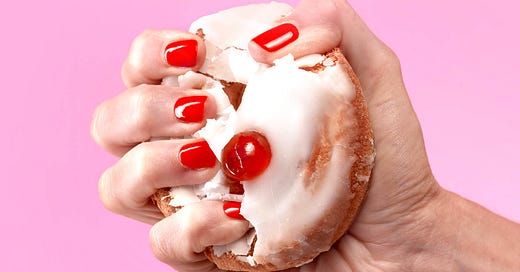



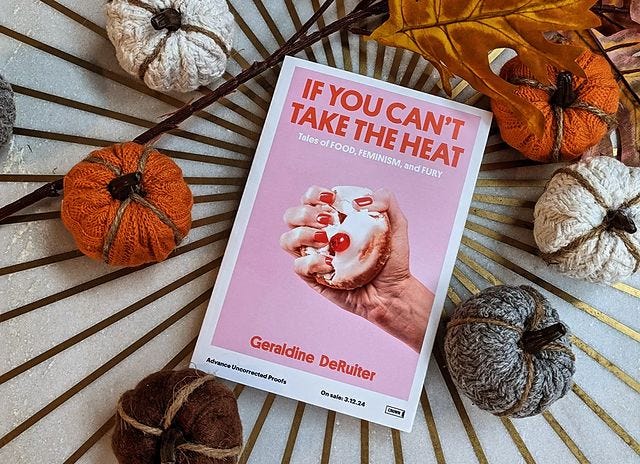
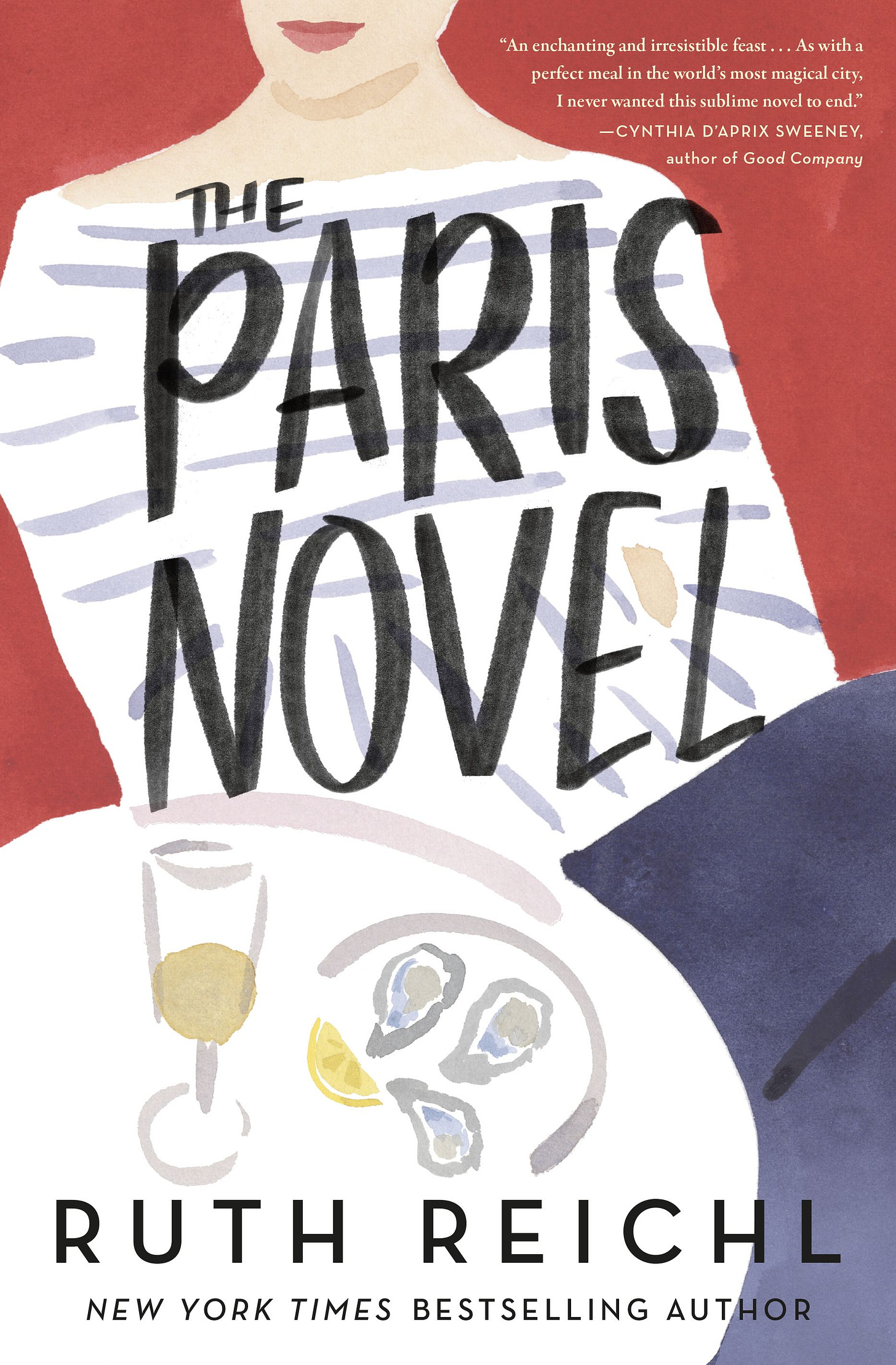
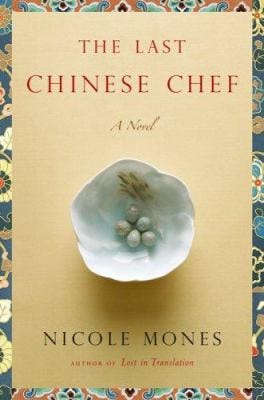
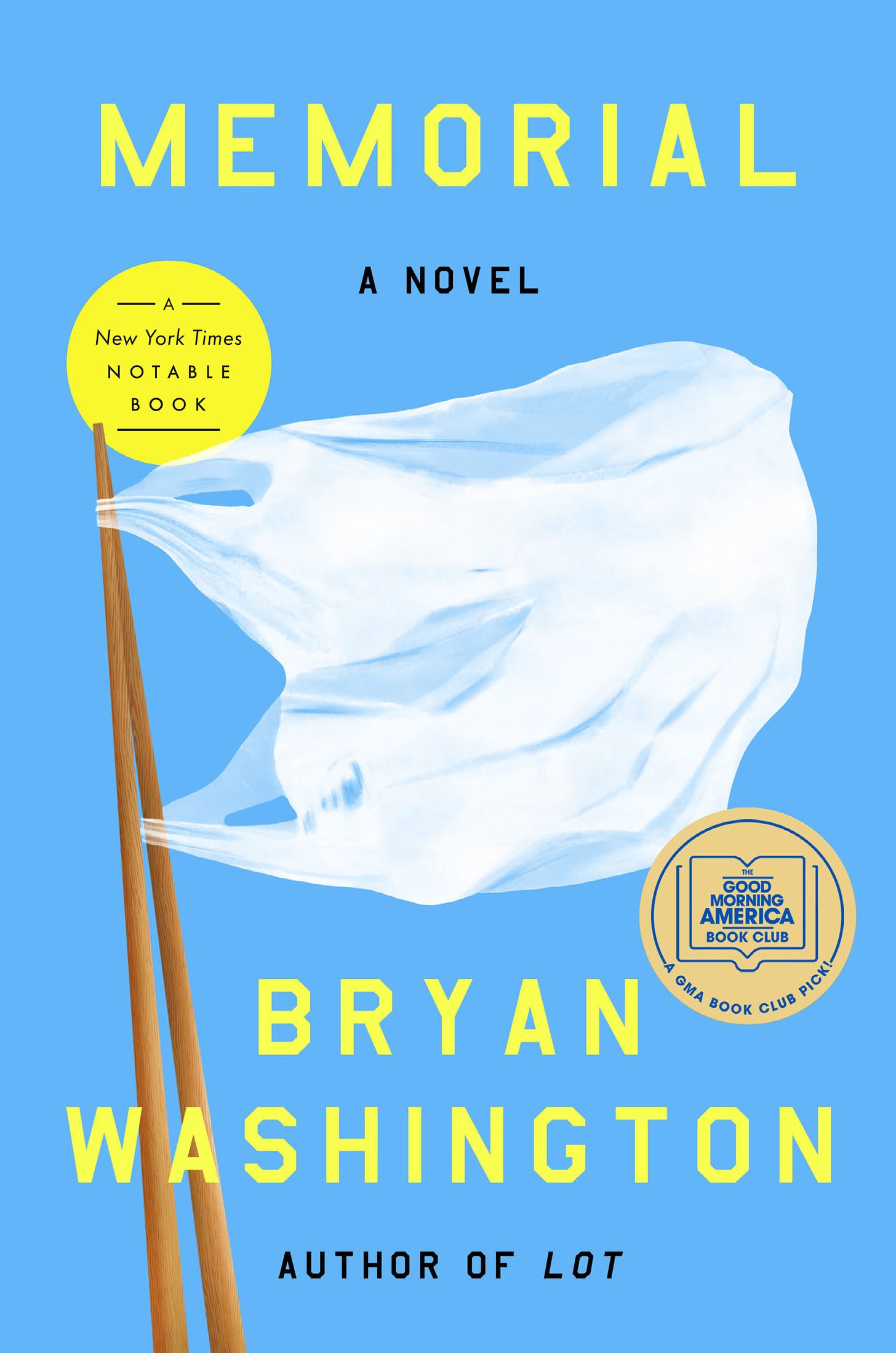
Since I'm related to Andrea (I'm her Mom,) I read everything she writes and mostly agree with what she says.
I just love the way you write Andrea and thanks for reminding me of the Everywhereist again.